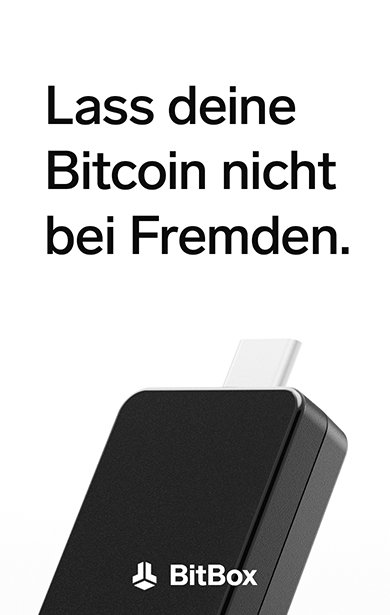Bitcoin fees explode after Halving
Savings plans no longer profitable in some cases?
Tonight's "halving" of block 840,000 not only halved the so-called block subsidy for miners, but also activated the new "Runes" token standard created by Ordinals inventor Casey Rodarmor. These are intended to be an alternative to the BRC20 standard, which has been quite successful to date. Unlike previous attempts to implement tokens on Bitcoin, Runes rely on a UTXO-based transaction model, just like normal Bitcoin payments. In concrete terms, this means that any number and variation of tokens can be linked directly to the data structure on which Bitcoin is based.
The "Runes" token standard is another attempt to implement "colored coins" on the Bitcoin blockchain, similar to previous efforts such as MasterCoin (later renamed Omni), CounterParty and more recently RGB, Taro Assets and BRC-20. The special feature of "Runes" is that this standard allows coins (tokens) to be issued on Bitcoin that directly use the UTXO data structure.
Jimmy Song, Bitcoin developer
Particularly in the ordinals, NFT and meme coin community, there was a lot of hype surrounding the (essentially still completely useless) runes in the run-up to their activation. The driving force behind the purchase and mining of these tokens is therefore pure speculation by market participants seeking quick profits. Blocktrainer.de already warned a few days ago that there would be a massive increase in transaction fees following activation.
Record sales for miners
Runes mania and the resulting battle for block space , combined with the already increased interest in storage space on the Bitcoin blockchain, has led to a massive increase in network fees. In some cases, fee rates in the five-digit range (sat/vB) were and are being paid. In some cases, miners accumulated several dozen Bitcoin for processing individual blocks.
For the miners, this means that they are currently reporting record sales and high profits in the seven-digit dollar range despite the drop in block subsidies. In fact, nine of the ten most valuable Bitcoin blocks ever mined were all created today. And unlike previous blocks where massive fees were paid, this time it wasn't a case of technical or human error. People are aware of the high costs and are simply accepting them in the hope of later profits.
Nine of the top 10 most valuable blocks have been mined today pic.twitter.com/0W5zbLOHx0-
Clark Moody (@clarkmoody) April 20, 2024
Problems for savings plan users
Among those suffering from the current record fees are users of non-custodial savings plan providers such as Relai or Pocket. Although the services generally make every effort to keep network fees as low as possible for the end user through batching and other measures, even these are reaching their limits in the current environment. In order to transfer the BTC to customers' own wallets after purchase, a (currently unfortunately very costly) transaction is absolutely necessary. Providers such as the Austrian broker 21bitcoin or BISON from the Stuttgart Stock Exchange, which provide customers directly with an integrated wallet, are currently probably the better alternative - with all due respect for the bitcoiner credo "be your own bank".
In times of exceptionally high fees, it can therefore make sense to either wait with savings plan executions or to accumulate in a "custodial wallet" with these providers in the short term so that a potentially expensive payout to your own wallet remains reasonable. This is a very individual compromise that everyone should make for themselves - and which of course also depends on the amount.






